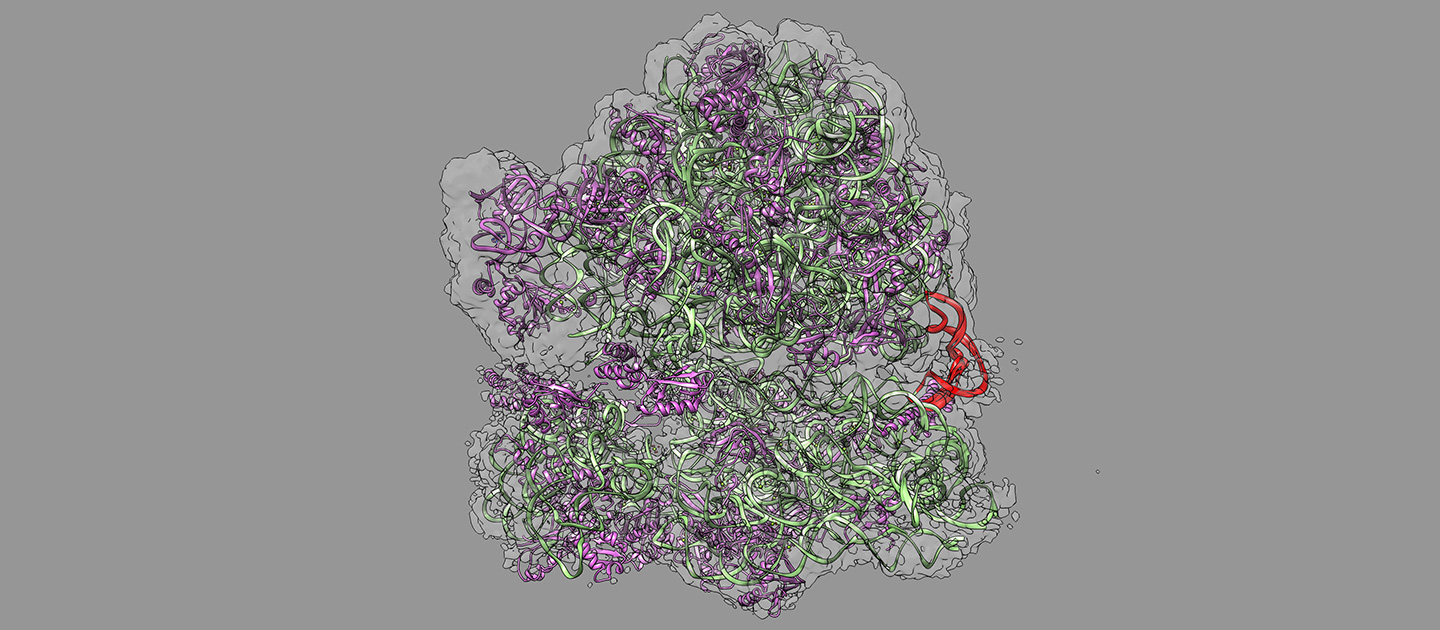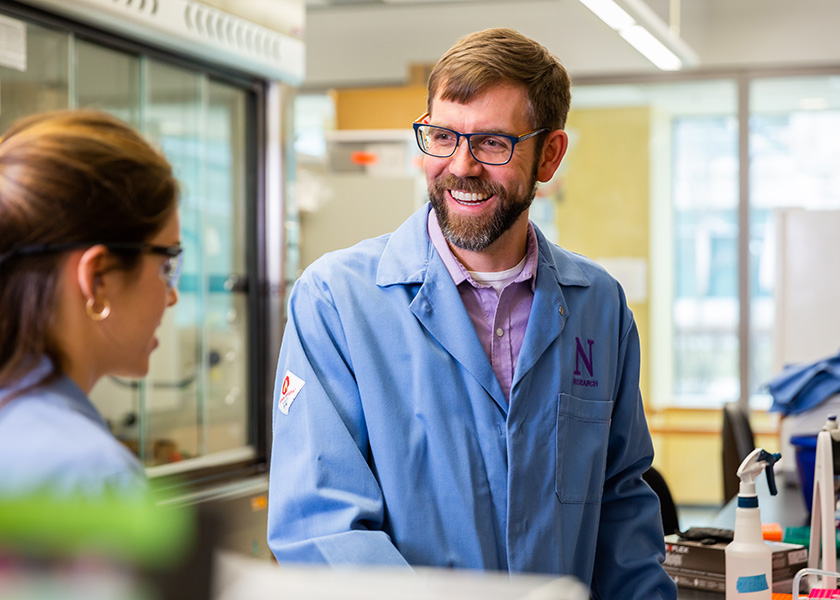Artificial Ribosome Continues Advancing
Researchers created a new version of Ribo-T

Led by Northwestern Engineering’s Michael Jewett, researchers created a new version of an engineered tethered ribosome dubbed Ribo-T, which provides a foundation to propel broad, new efforts in synthetic biology. The leaps forward from the original 2015 version and then the 2019 sequel could lead to new classes of peptide drugs that address rising antibiotic resistance, and improvements in flexible electronics, adaptive materials, and wound-healing materials.
These findings were detailed in the paper “3D-structure-guided Evolution of a Ribosome with Tethered Subunits,” published July 14 in Nature Chemical Biology. Jewett is Walter P. Murphy Professor of Chemical and Biological Engineering and director of the Center for Synthetic Biology.
“If successful, our ribosomes could enable us to begin evolving non-protein medicines and materials in the ways that we, and nature, evolve proteins,” Jewett said. “This could lead to new classes of biotechnology products that address societal needs.”
Ribo-T evolves
Ribosomes have extraordinary synthetic capabilities, and that’s driven efforts to harness them for societal needs such as insulin production and making laundry detergent enzymes. In nature, however, only limited sets of ribosomal monomers, or protein building blocks, are used, thereby resulting in limited sets of biopolymers. Expanding nature’s repertoire of ribosomal monomers and polymerization chemistries could yield new classes of enzymes, therapeutics, and materials with diverse genetically encoded chemistry.
Jewett and his colleagues developed a novel tethered ribosome called Ribo-T, where two subunits are covalently linked to form a single entity, that can be engineered for synthetic biology applications. With this ribosome, the processes of biology (like protein biosynthesis) can be controlled to make molecules biology never thought about.

“It's pretty cool and opens a whole new world,” Jewett said.
To engineer the ribosome, Jewett’s team created a new directed evolution method called Evolink, which provides new opportunities to engineer macromolecular structures like proteins and RNAs. It also heralded an improved Ribo-T, which was previously held back by an inefficient tethered-ribosome system.
The recent upgrades could lead to even more breakthroughs in the future.
“Looking forward, we are excited to engineer Ribo-T for new purposes to make polymers with previously unimaginable structures and functions,” Jewett said.